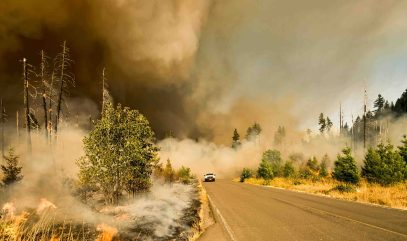Drinking Beer Can Help Save the Salmon
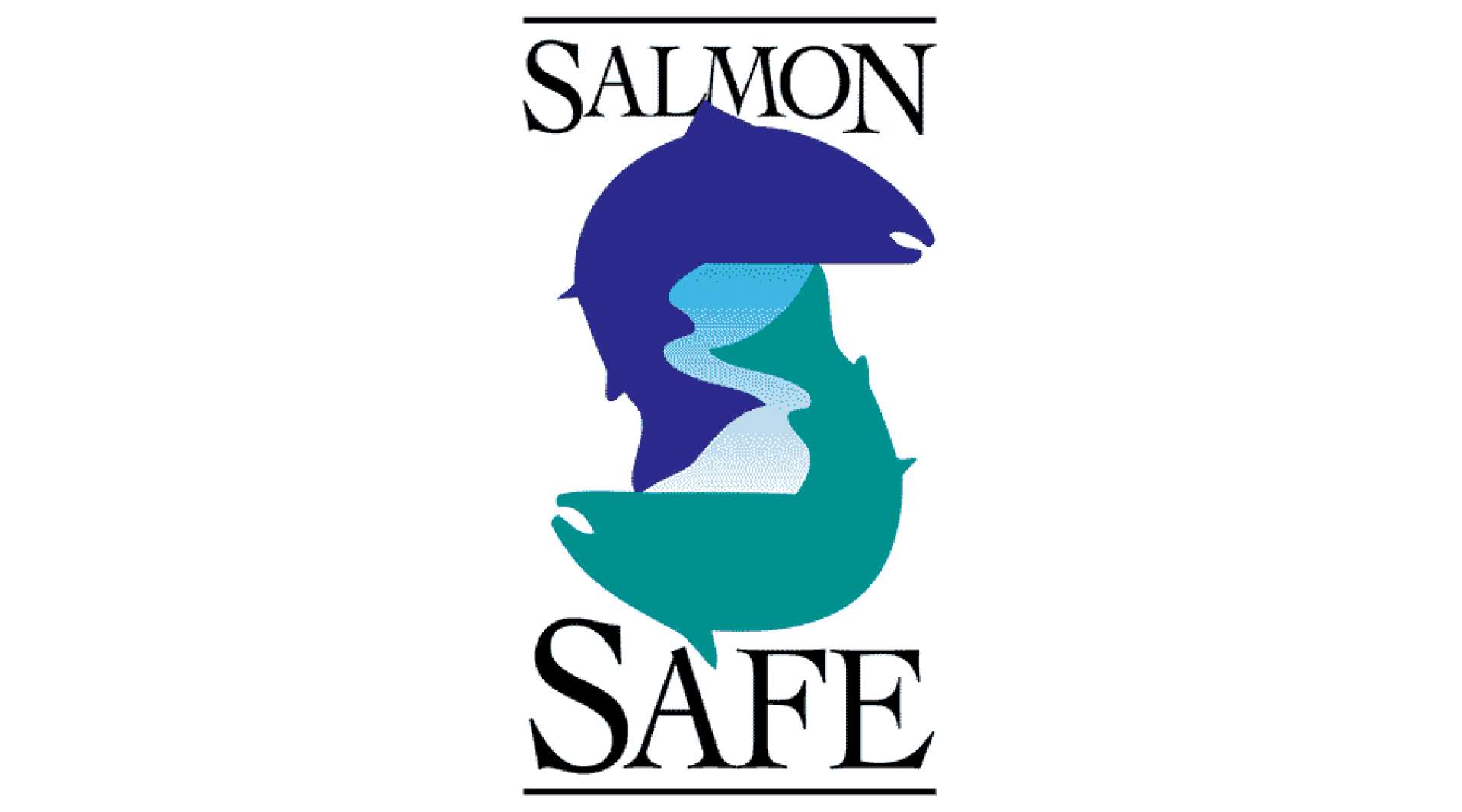
In the summer of 2022, Brick West Brewing Company launched Upstream, its first Salmon-Safe Certified draft beer. This new beer features two distinct ingredients that set it apart from the other drafts: Salmon-Safe hops and malt.
If you, like our team at Measure Meant, are a fan of drinking beer, then you may be familiar with the simple yet delicious components that set beer apart from other alcoholic beverages. Beer consists of four key ingredients: hops, malt, yeast, and water. The Pacific Northwest is the most ideal climate for growing these ingredients, with Washington State being a leader in hop farming, generating revenue of $482.2 million annually and Idaho growing roughly 43.6 million bushels of barley, the precursor for most malt.
In the Inland Northwest, craft breweries are becoming so popular for their unique beers that visitors are traveling from all over the U.S to embark on tasting tours from the Palouse to the Southern Canadian border. Growing demand and desire for steady growth and profitability means that sustainability is often excluded from the conversation. The four notable ingredients are simple enough, but have profound impacts on the environment.
Farmers and brewers are positioned to make feasible changes using the Salmon-Safe certification model. Using brewing practices that support this certification ensures that the process from growers to brewers to customers are using protocols that protect local waterways and native species.
It’s good business too. In a study conducted by Nielsen, researchers found that “66% of consumers are prepared to pay more for sustainable brands.” This growing demand for sustainably-made products and services has encouraged local businesses to look into the impacts of their own offerings. Spokane is no different, with Brick West joining The Grain Shed, Lumberbeard Brewing, and other national breweries in providing sustainable-minded products to consumers.
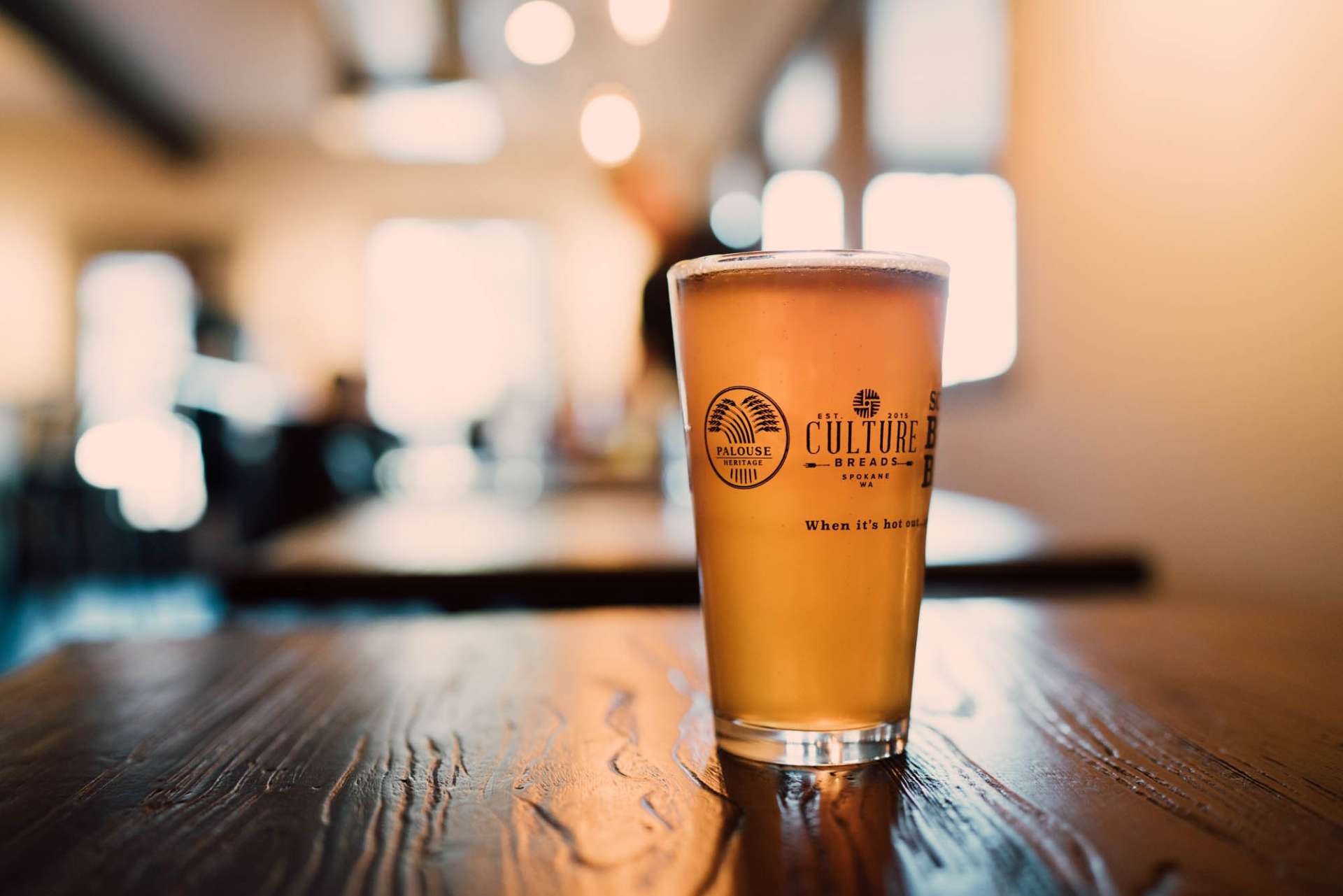
Salmon-Safe Certification
What does it mean to be Salmon-Safe and why should it matter to you and other consumers? A Salmon-Safe Certification signifies that the product has undergone third-party audits that specifically address declining salmon populations and the general health of watersheds and rivers. Salmon-Safe also offers practice-based, rather than site-based, accreditation that encourages companies to apply Salmon-Safe principles across their entire operation. Seeking out and buying certified products means supporting businesses dedicated to tackling the environmental crisis on a tangible level.
It’s not just for brewers. Farmers, universities, vineyards, golf courses, and parks can also obtain a Salmon-Safe certification.
“The standards take a holistic approach to farm management: You can’t certify just a part of a farm, but its entire operation,” says Salmon-Safe Co-founder Dan Kent.
These practices ensure environmental security and the success of salmon populations. According to the Salmon-Safe website, along with the certification, farms also receive assistance in applying for sustainability grants, public recognition, and access to branding materials.
In an interview with the Spokane Journal of Business, Dan Kent, Salmon-Safe Co-Founder and native of Palouse, Washington, “estimates that roughly 20% of farms in the Yakima Valley have transitioned to Salmon-Safe certified practices”. Salmon-Safe certification is becoming more desirable not only because it is better for the environment, but because it is helping to ensure farm health, overall profitability, and consumer satisfaction.
While farmers’ concerns may not always encompass a sustainability perspective, farmers in Washington are realizing that Salmon-Safe protections benefit them and their consumers in the long-run. Salmon-Safe certification offers protections and practices that optimize soil health while reducing erosion, repairing watershed quality, and aiding in the overall resiliency of farms. Manuel Leal, manager of Roy Farms, a 115-year-old hop farm outside of Yakima, Washington, has joined the cause to keep salmon safe and challenge the concept of farming being erosive. “We don’t use certain chemicals with the Salmon Safe method of growing,” says Leal. “It’s more work, but that creates more jobs, and that’s a good thing.” Roy Farms goes a step further and is also a Certified B Corp, further proving their commitment to community and the environment. Other Salmon-Safe Certified farms are influencing change for the planet and their business by providing consumers and retailers the opportunity to make an impact through their spending.
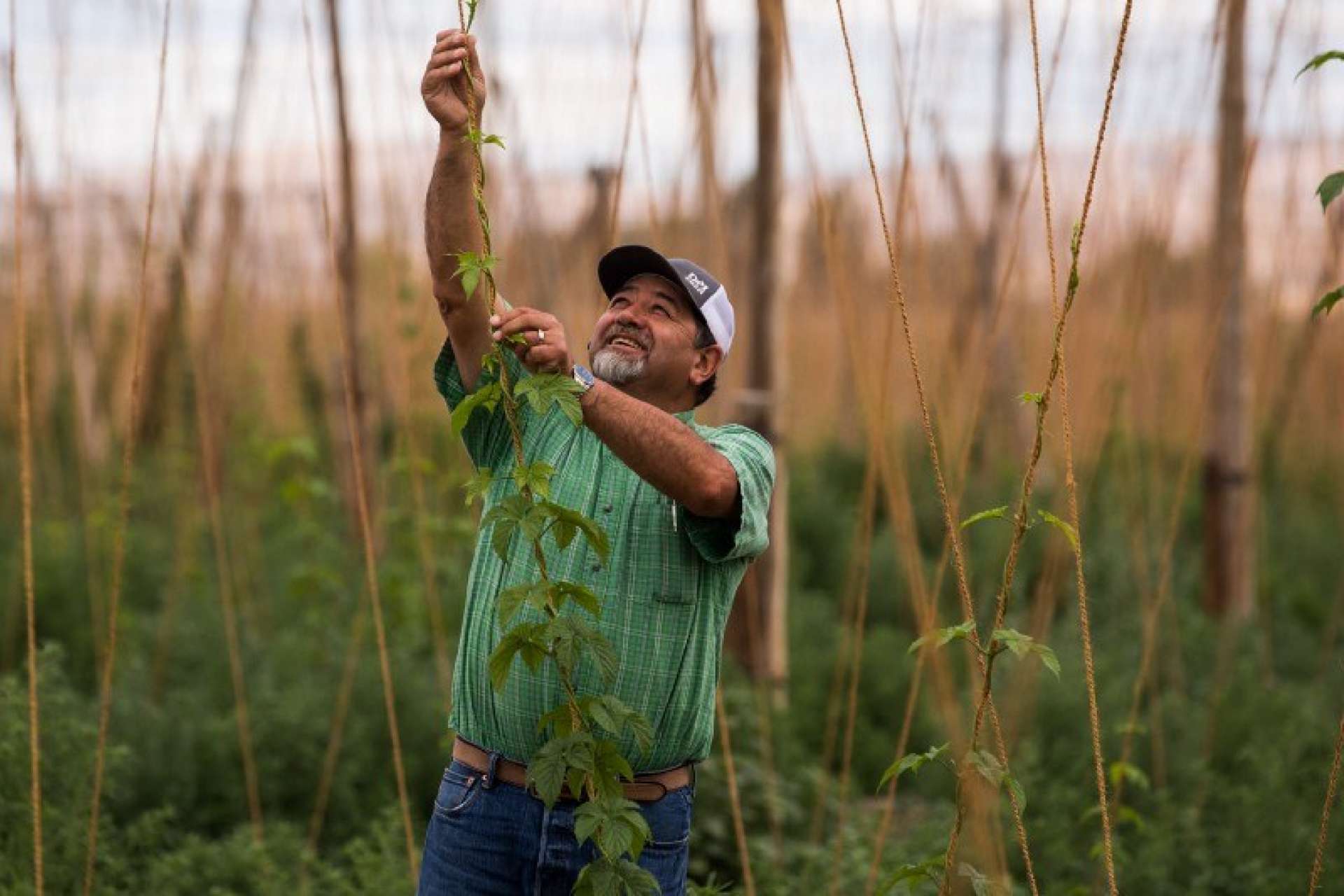
Why it Matters for Spokane
The City of Spokane resides on the homelands of The Spokane Tribe of Indians and Chinook salmon, once a symbol of prosperity to the Spokane People. The Spokane Tribe and many other neighboring tribes relied on the large quantities of Chinook salmon that would migrate up the river for generations. The disappearance of salmon is a direct result of industrialization in the Inland Northwest.
The small lumber and mining town of Spokane quickly became an industrial city with the arrival of the Northern Pacific Railroad in the late 1800s. Heavy industrial pollutants such as polychlorinated biphenyls, more commonly known as PCB’s, became one of the first major contaminants in the river. By 1939, salmon had stopped traveling up the Spokane River entirely due to the completion of the Grand Coulee Dam.
Today, Spokane Tribal Leaders continue to work tirelessly to protect the river by returning salmon to their natural environment and in August of 2022 returned 150 Chinook Salmon to their homelands in partnership with The Inland Northwest Land Conservancy. “Since 2015, the tribes in the upper Columbia have been leading an effort to reintroduce anadromous fish to areas upstream of Chief Joseph, Grand Coulee, and Spokane River dams,” says Hemene James, chairman of the Upper Columbia United Tribes.
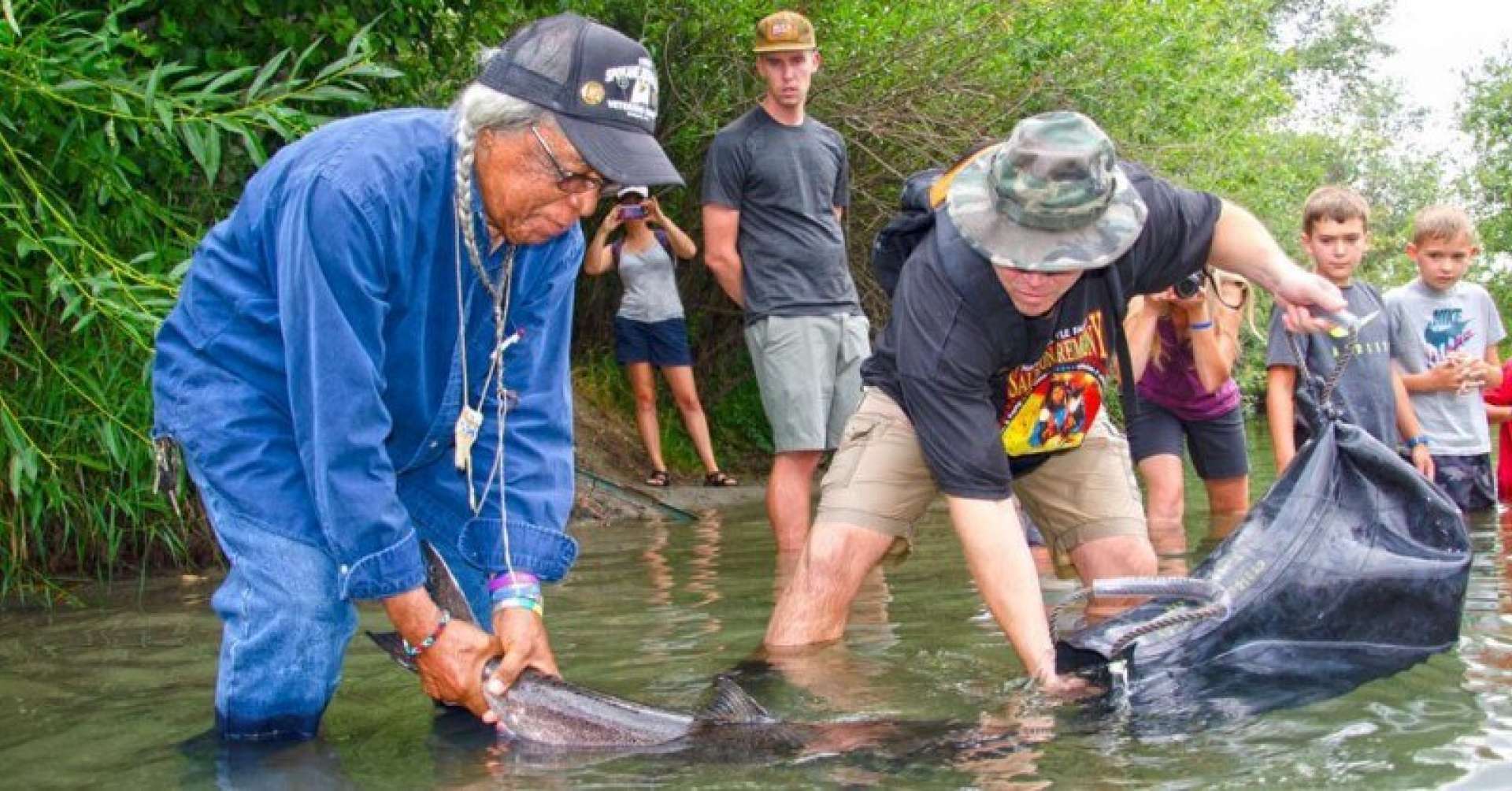
While the release of Chinook Salmon back into the Spokane River is a momentous win for the Spokane Tribe of Indians, watersheds in the Pacific Northwest are still threatened by ecological disruptors. About half of the Pacific Salmon populations are in some state of decline due to the increasing impacts of climate change, including disruptive farming practices.
Agriculture is a vital part of Washington State's economy thanks to fertile soil and a diverse climate. The prevalence of agriculture emphasizes the need for encouraging more farmers to adopt Salmon-Safe practices. But farmers can only do so much, and as consumers we must purchase products that use farming methods that hold people and the planet at the center of their production. Salmon-Safe Certification is working to educate farmers and consumers to produce and purchase goods, including beer, that protect watersheds in the Pacific Northwest.
Making an Impact
So how can you make a difference with your Friday beer? As consumers, we must be diligent and support businesses that are seeking to make transformative change. This work goes beyond just one beer on the weekend. It requires us to be vocal and vote with our dollars.
Businesses unwilling to invest in their communities and the planet are doing themselves a disservice. Dan Kent agrees with this logic. “I think a lot of people look at sustainability as negative against profitability, but really, if you are operating in a sustainable manner, you’re (finding) ways to increase your margins in the long run,” he says.
As business leaders and consumers, now is the time that we loudly hold ourselves and our communities accountable for a sustainable future. That can start with what beer we grab out of the fridge.
Read More
Reject the business case for sustainability: The 1980s wants its business case back
They say a rising tide raises all boats. But there isn’t any raising to be done when the tide no longer comes into the bay – all boats remain stranded. We are often asked about the business case for sustainability. For y
Protect Your Community or Organization with a Climate Action Plan
Introduction Our changing climate impacts every aspect of our lives—our economy, our communities, and the environment—in ways both visible and unseen. While scientists and environmental organizations have long recognized
Witnessing the world of sustainable business firsthand
As a young student with a passion for climate justice and sustainability, it always felt like a contradiction to pursue a degree in business. From what I had witnessed, businesses didn’t necessarily operate ethically. Mu
Interning with Purpose: My Journey with Measure Meant
From January to May 2024, I had the distinct pleasure of working with Measure Meant as an Operations Intern. As a graduating senior at Gonzaga University, I had not planned on pursuing another internship in my final seme


